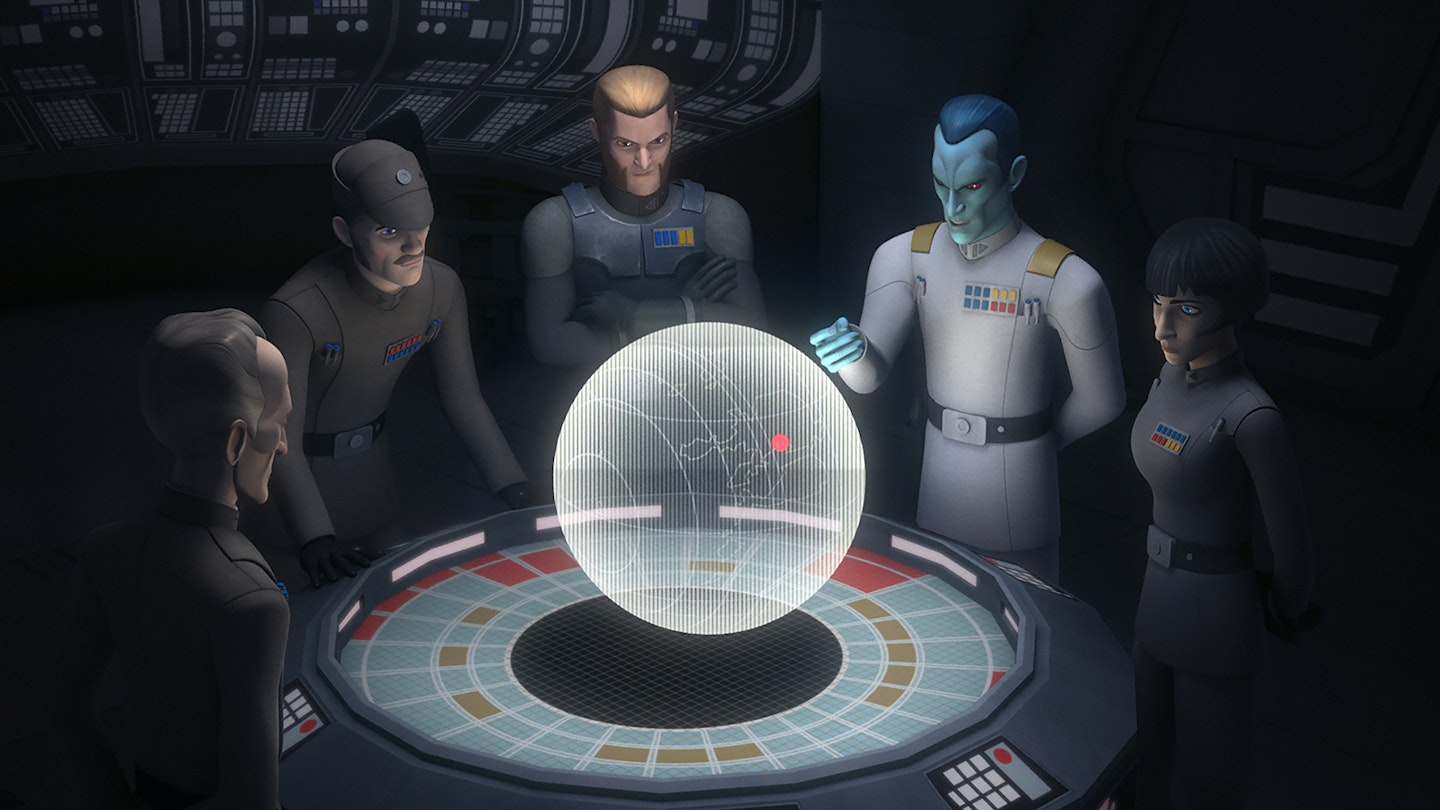Star Wars Rebels, which has kicked off its third season, is a series in evolution, both in terms of its characters and a scenario that is growing increasingly more complex as it goes on. It's a precedent set by the last animated series, Clone Wars, based on the creative desire to have the show grow up with its audience.
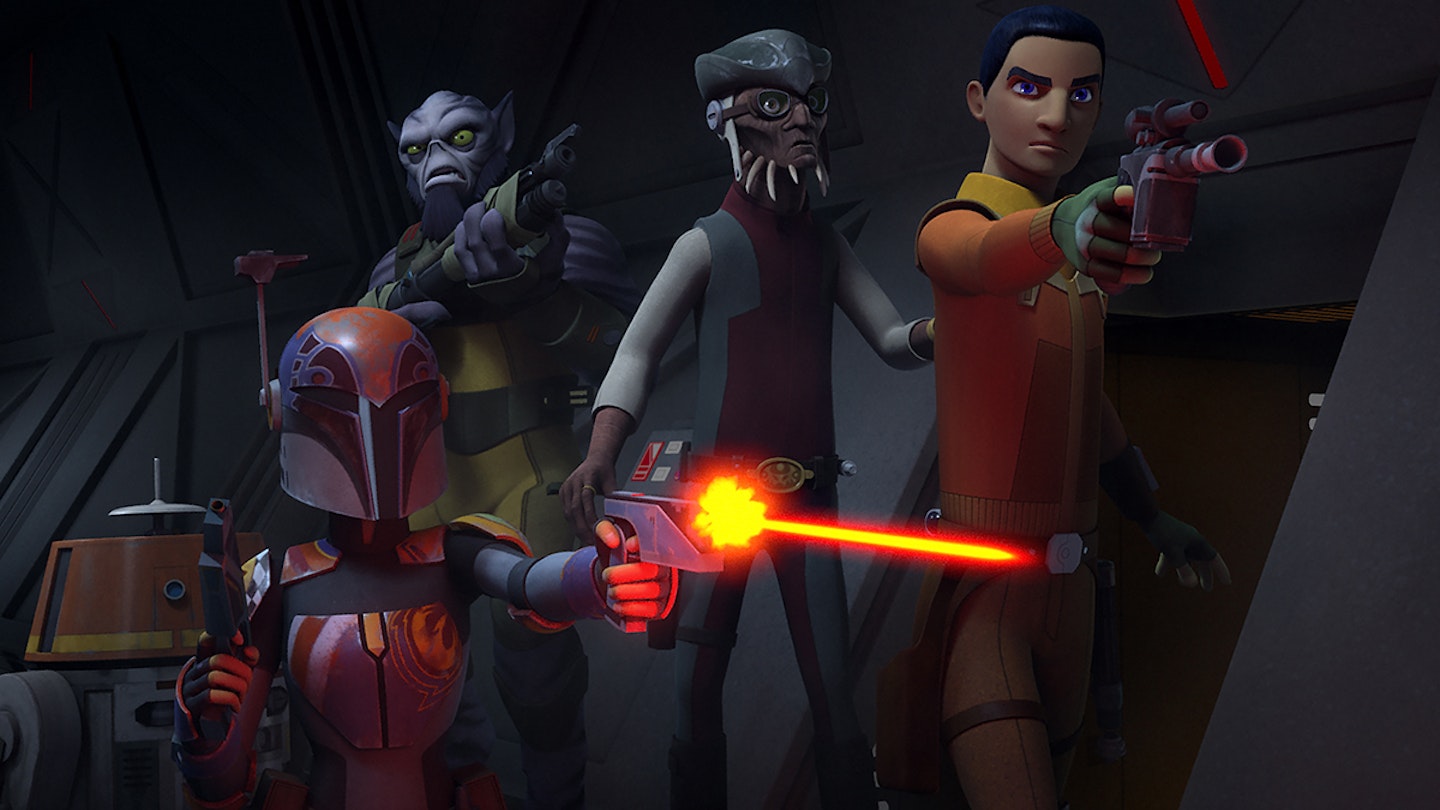
Of season three, Lucasfilm describes the set-up as follows: "Having established a secret base on Atollon, the Ghost crew, now led by a more powerful Ezra, strengthens the rebel fleet by acquiring new resources and recruits eager to stand against the Empire. However, the Imperial efforts to eliminate the rebellion are now being led by the coldly analytic Grand Admiral Thrawn, whose strategic, tactical and cultural insights make him a threat unlike any they have faced before."
In the following exclusive interview, executive producer/director Dave Filoni reflects on the events of last year and previews season three, including the introduction of Thrawn and the ways that the show could connect to Rogue One: A Star Wars Story.

How would you describe the evolution of the series from the end of season one to the finale of season two?
I think you know season one dealt with such an early point in this boy, Ezra Bridger's, life. He's coming into an understanding that there's a bigger world, and the Force. It's about his home, making a family and kind of accepting a new family. When we got into season two, you're entering more of the stage where now he's a lot more self-aware and he's aware that he has friends supporting him. All of that confidence and support can also lead to more difficult decisions. He's definitely moving into the phase where he's confronting the "real world" where you find good, but you also find its opposite in evil. It was a matter of making him face some of the challenges in life that, up until that point, the adults had been dealing with more for him. He's just growing into that role.
I always look at the evolution of these characters and their journey kind of like a child growing up. There's that moment that you realize your parents are people. They're not these magical beings that have always been, and that they were young once and that they had flaws. I try to put perspectives like that on these characters. We thought it would be interesting for Ezra to face some of the bigger consequential characters like Vader; to become aware of them and aware that as he's got these abilities, and that's wonderful, that there's also great responsibility that's going to come with them if he's going to defend the freedom of people and the justice of people with them.
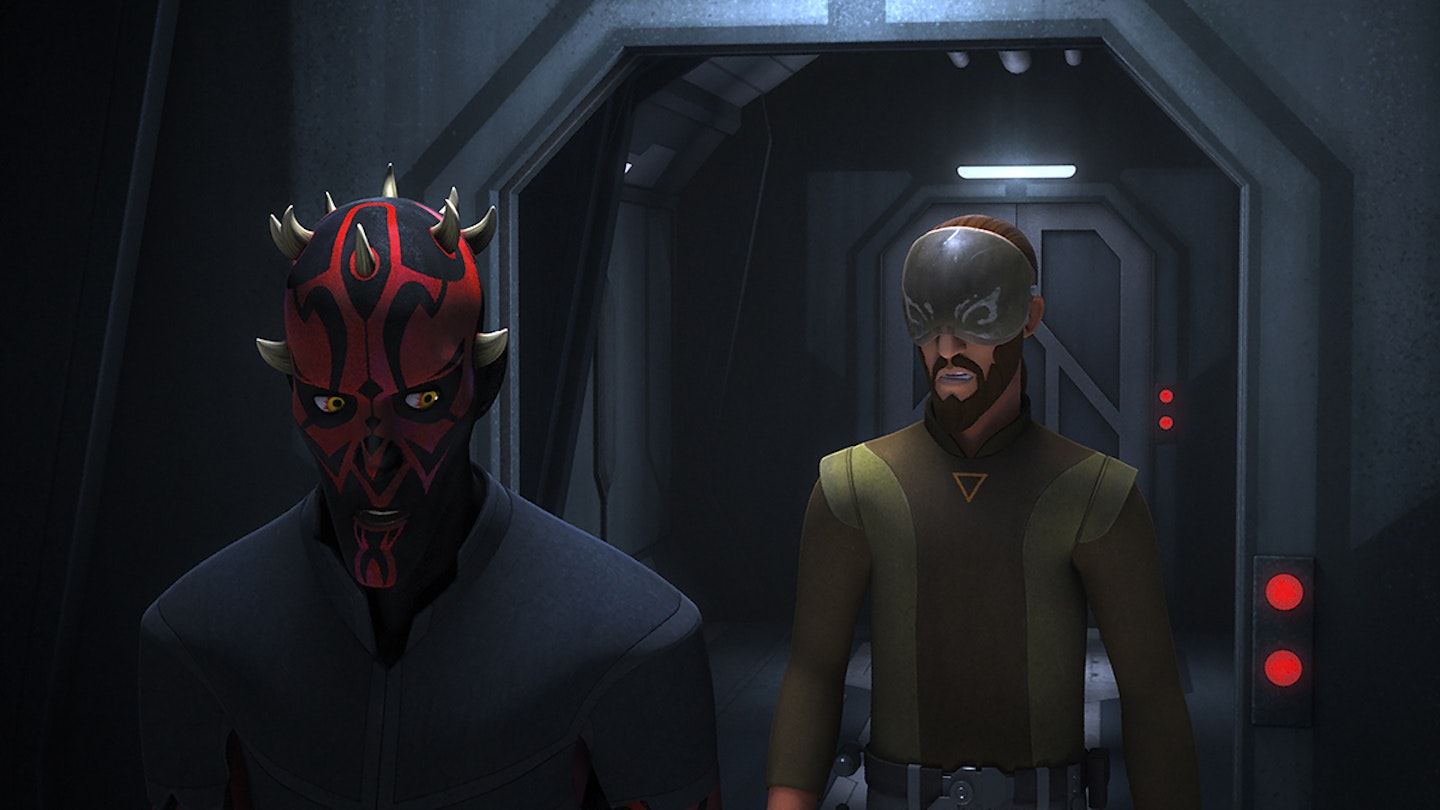
When you look at someone like Ezra, and you have them meeting Vader, how tough is that? You hear "Vader's the biggest badass in the galaxy" and you've got this kid. How tough is that to make it feel realistic without saying, "Well, he's our hero, so he has to survive"?
It would have been impossible without Ahsoka Tano; we just couldn't have done it, because they would just get destroyed. We pretty much showed that in the first episode that they were all on together, where Vader confronted Kanan and Ezra and pretty much dispatched them swiftly. It really isn't a competition, which I kind of like, actually. It gets you back to classic Star Wars, which is they run. In the first two episodes of season two, they're very much running out the door on the other side of the room which, if you remember, most of the time in the original trilogy, whenever you would see Vader, that's what the characters did.
In retrospect, you're absolutely right.
Oh yeah. They come to Echo Base, "Let's get out of Echo Base." You know, in the Death Star, "Luke, shoot the door, kid, so Vader can't come after us!" They really don't stick around. Han probably would have rather turned tail and run when he went into Lando's dinner, but the Storm Troopers cut him off. We tried to bring a bit of that back, which is, if you get caught in a room with Vader, you're probably going to lose that fight unless you have a Jedi that's equally trained — as in Ahsoka — that could really stand toe-to-toe with him. Then you have a little bit more logic to the confrontation.
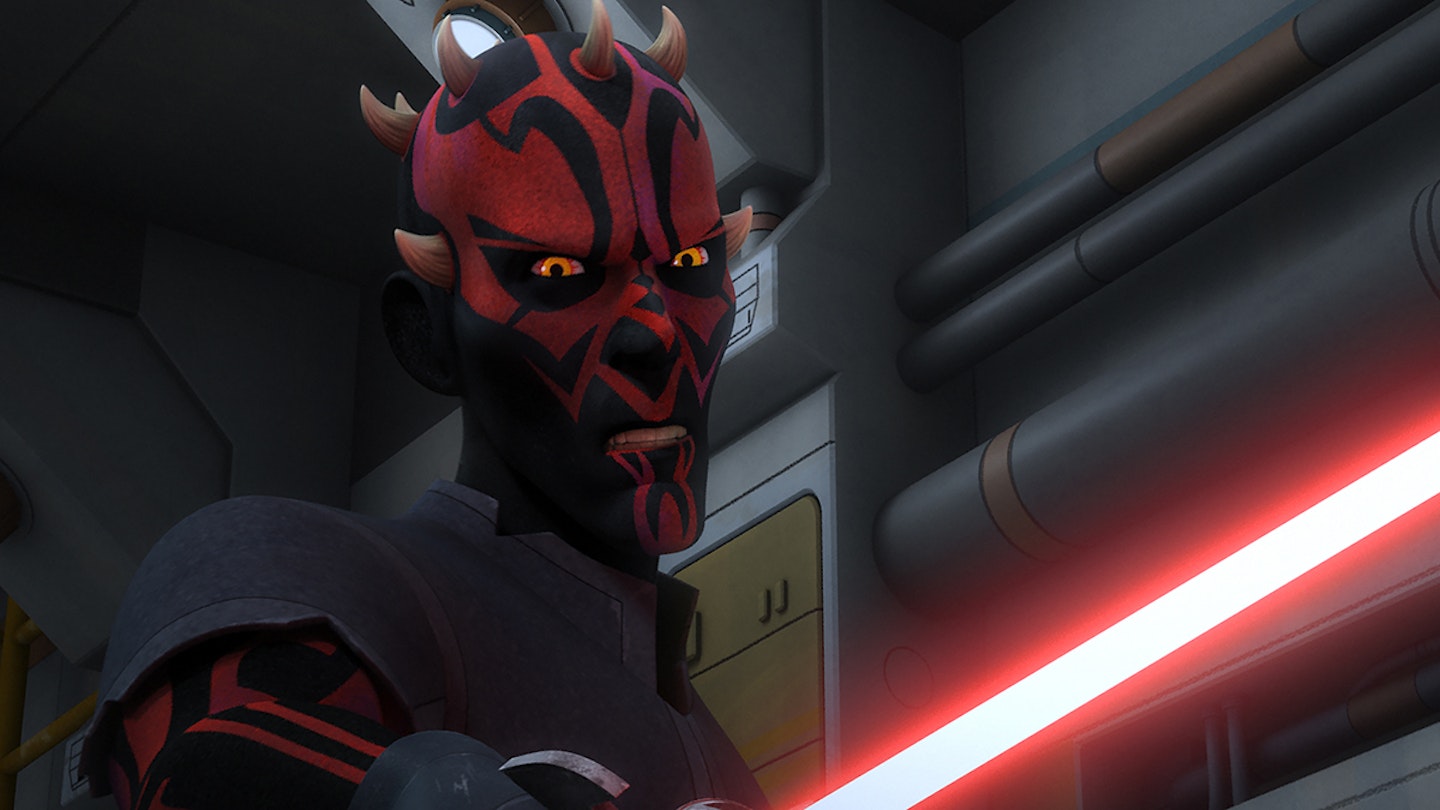
Ahsoka, of course, goes through her own journey in confronting Vader. Would you feel having that was a bit of vindication in that we never got to see their confrontation on Clone Wars?
I was really grateful for the opportunity. I didn't want Rebels just to become some strange extension of Clone Wars that was finishing things off because we didn't do it on the other show. It had to be organic and make sense to Star Wars: Rebels to have her in it. Since there was this interest in having Vader, it was the perfect opportunity, because it makes sense why she'd be in this story. Also for Vader, it wasn't like we just brought him in to be the bad guy. We brought him in and were able to apply a pretty deeply personal story between him and Ahsoka, which I think makes the whole thing have more value in the storytelling. It's not just "here comes the evil, cruel Darth Vader dressed in black, bad guy." There are layers to this and we really could get down into this fact that he was this good guy at one point, if you go back far enough. It has all kinds of foreshadows and dangers for kids watching Rebels now, because they see Ezra dabbling in a bit of the darkness here because he's afraid. When you're afraid, you look to amass power to defend yourself, not realizing that can also be corrupting. It just created a lot of great themes that made sense.
I couldn't believe we actually got to do it. I thought of that for a long time. We've been able to do a couple things that, I think, have brought some closure to people that watched Clone Wars. Clone Wars viewers, as you can imagine, in my world are very vocal. They're constantly wanting me to finish the show. I really appreciate that, but I think they've watched Rebels also grow from something that maybe started out seeming much more simple compared to what they'd been watching on Clone Wars, too. Just as adventurous a story and, in some ways, complex as what they were getting in Clone Wars week to week. I think we have a bit more of a dash of the fun and excitement going on in Rebels, where Clone Wars had a lot more of the political atmosphere that you inherit in the Clone Wars era of politics and Senate and all that. We're more swashbuckling these days, I guess.
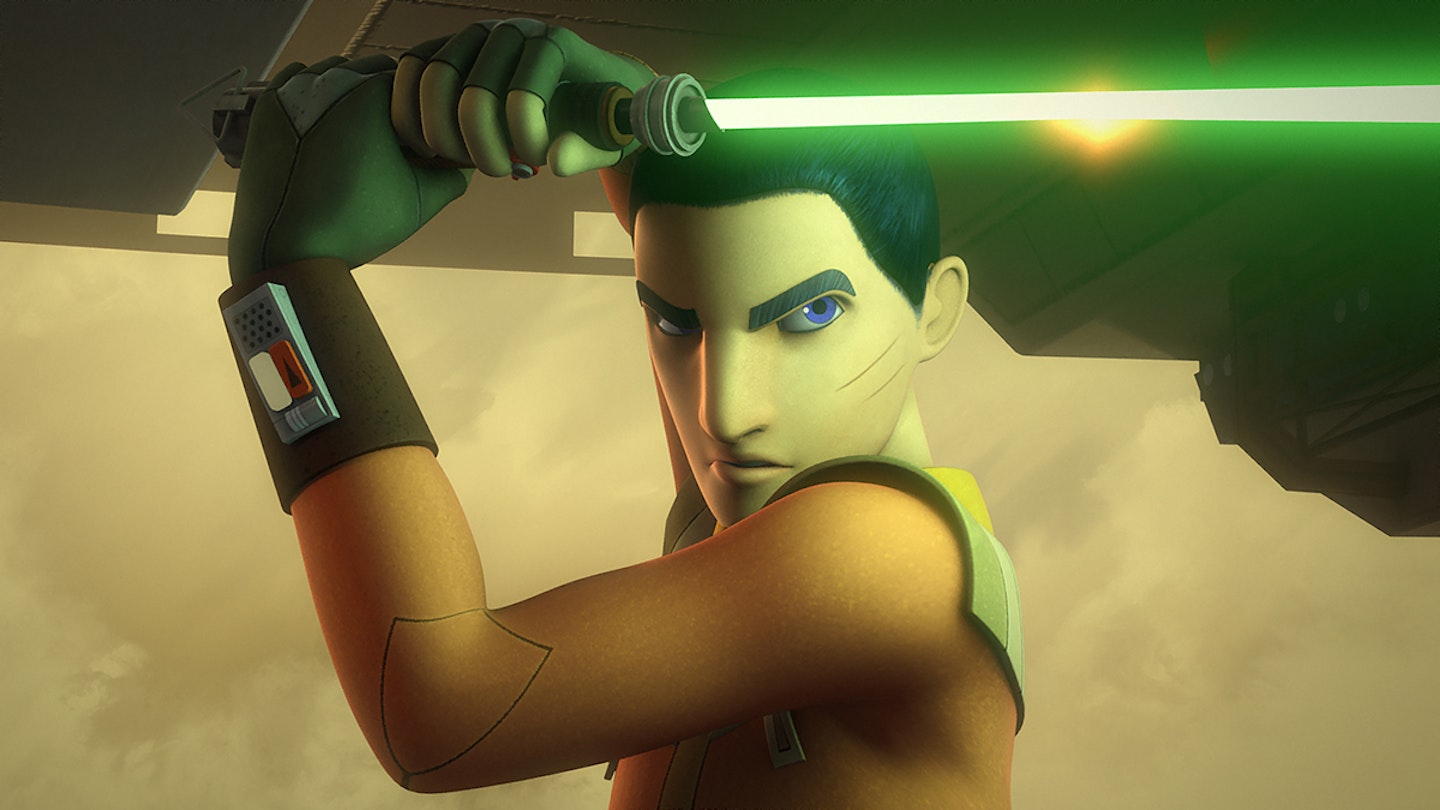
What's clever about the show is the way that the complexity of the continuing storyline and the characters has grown at the same time that the universe is expanding around them.
I appreciate that. I think that's kind of the way I look at it, which is, again, in childhood years, your world seems kind of simpler. I always felt that since Ezra was so young when we started, that we could take that idea that he sees his world as very simple. The villains in the beginning were very simple and almost comical when you think of Aresko and Grint, the Imperial officers who are almost tripping over each other at times. They're the very epitome of kind of a Keystone Cops-style gaff at times. His world was that simple and there weren't these big threats. Then the Inquisitor came and you started to get a shade of that threat and that build-up. Even the Inquisitor, at the end of the first season, speaks to Kanan about things that are far worse than him dying there. He's aware of Vader, the Inquisitor. He's aware of the greater evils out there, because that's his world. I wanted it to grow in that way. I also think kids can kind of identify with that as they're growing up with this show year-to-year. They need more. Their own lives are getting more complex.
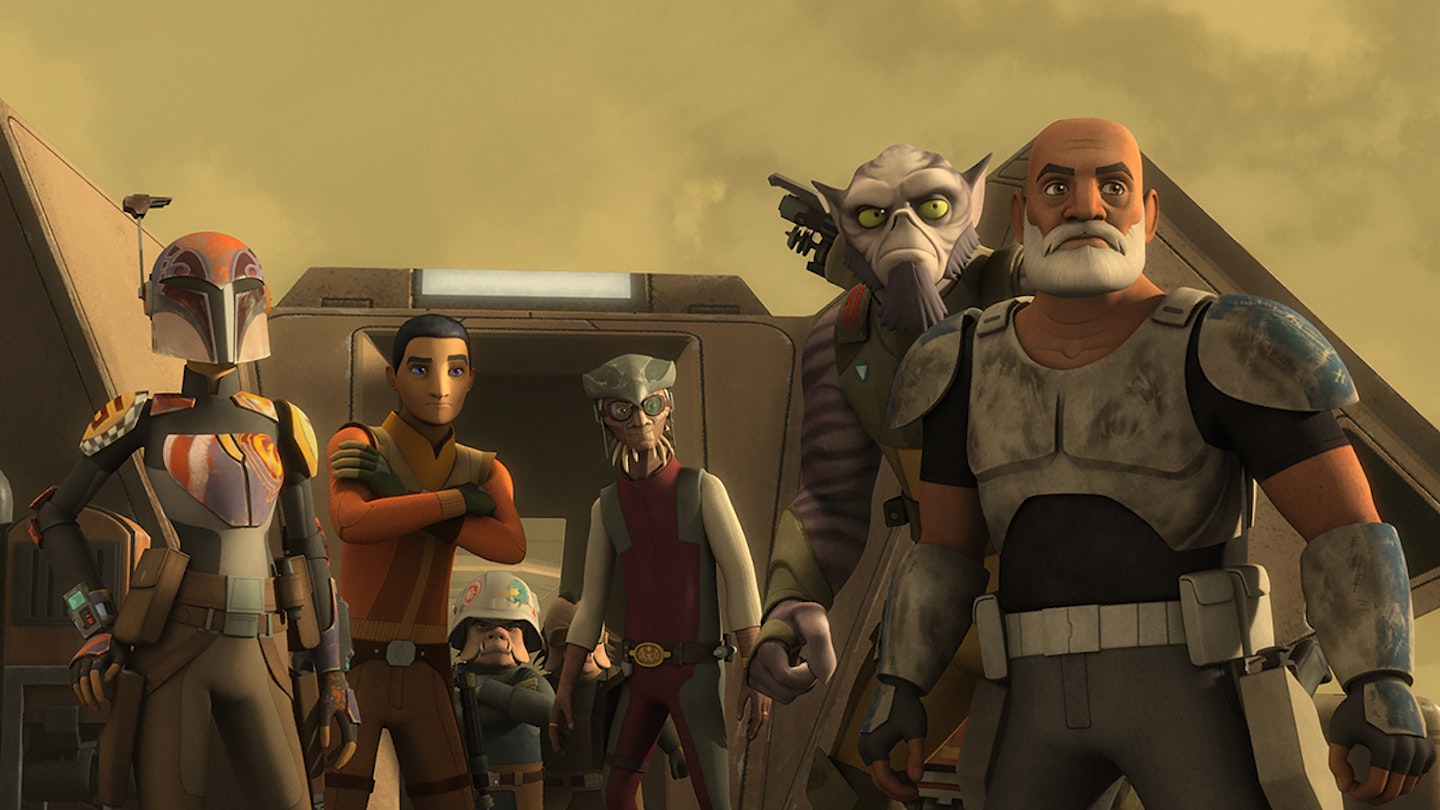
It's a much more exciting approach than having to hit the reset button at the end of an episode. Also intriguing is a "kid's show" taking that kind of approach.
You're right that in the past, especially in animation, there was always a big insistence that it be very episodic so that everything is the same at the beginning of every episode. In a saga like this, you know, it's just not possible. Some people say, "Well, the show's gotten darker." I'm like, "Yeah, but it has to." That's the way these stories go. The boyhood King Arthur, he's making drastically different decisions than he is when he's an older man. You're dealing with adult themes. That's the whole journey that we are all going through. I think why people relate to Star Wars is George Lucas is so brilliant at telling these stories that we relate to, but in such a fantastic environment with fantastic characters and things you want to believe in this story. I like in Rebels that we deal with the crew every episode. That is the big difference, for me, from Clone Wars. We were very serialized, this group, this group, this group, and if you tune in and you're, like, "Okay, I don't want to watch four episodes about droids," you're kind of out for four weeks. Here we always try to have something of value that's happening in every episode, that's actually building the bigger picture, sometimes in ways the fans don't realize yet, which is always kind of fun.
I think for the complexity, honestly it's something that George impressed upon me while we were working on Clone Wars. I think he realized he was in an episodic environment and that he could tell stories in these pieces and build to something. He was always on me to make connections and add to things. He wanted to tell tales that were a little more challenging and not so very mythic. We told a lot more social-type stories on Clone Wars, some political stories as well. I feel on Rebels that we've kind of married the two things, where we've brought a good dose of the Force teachings that George gave me over the years into this show. I've wanted to set all that down and say, "Here's how things developed and these are perspectives on the Force" and use this kid in such a way that as he learns, the audience can learn with him. Also to have some of the complexity of what it is to have a rebellion. It's not just this automatic thing that you've got in A New Hope. It actually was a struggle to have them build it.
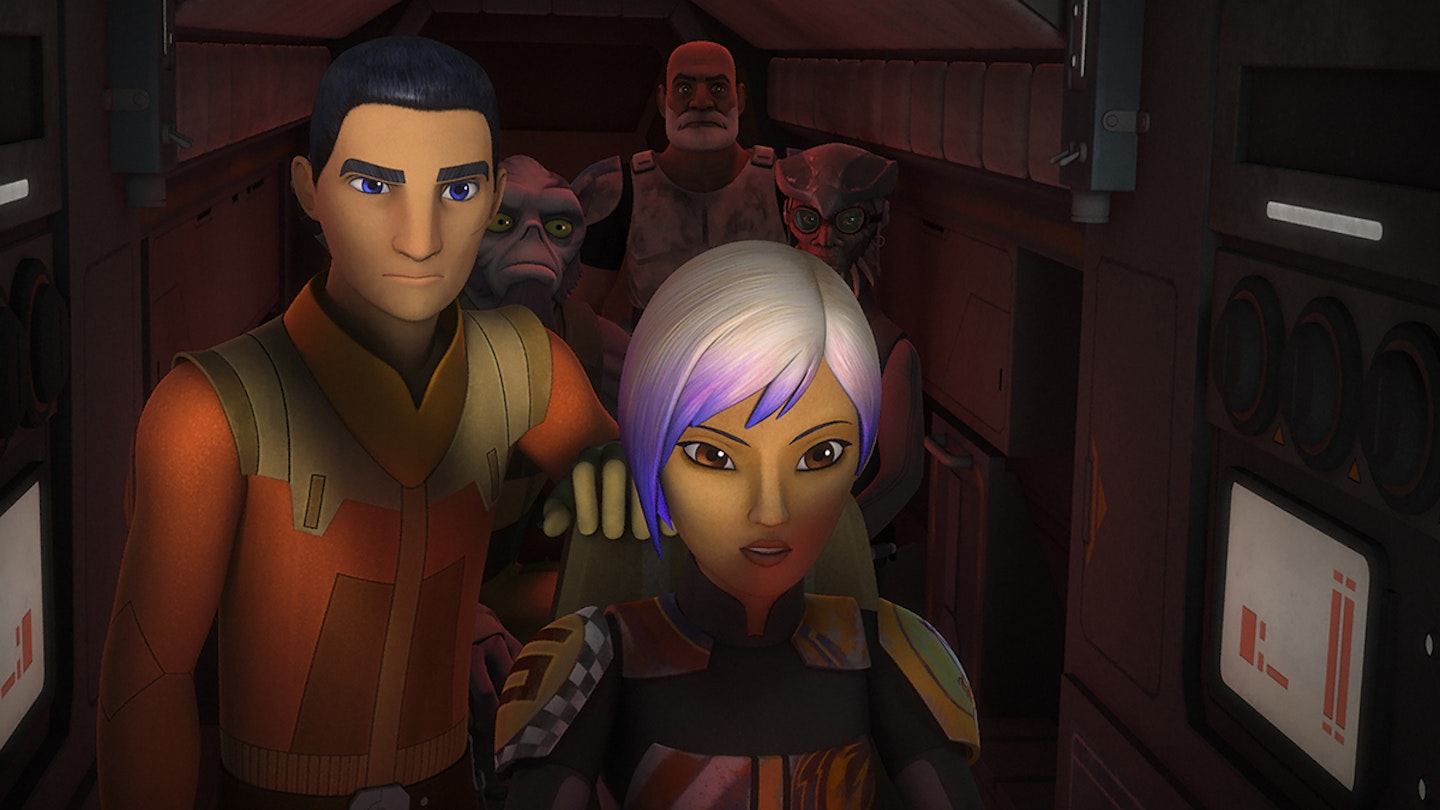
One of the oddest things is I am following up the Clone Wars, not just because it's the next show I made, but it's literally the next time period. When you think about it, everything that my crew and I worked on the last several years completely applies to the history of this experience. I think that's why you can feel layers to it. From the designers who work on this show to many of the episodic directors we frequently use, they all know the history, so it's easy to kind of get it in there because we created it.
Which can't be an easy thing to accomplish.
You know, all animation is a tremendous amount of work, but when you put Star Wars on the top of something, there's already this bar that people are going to put on it. It has to have a quality level that's so high. We've always felt that way and we've always, at Lucasfilm, treated the animated series like they just have to be an extension of the films. We're just doing it in the medium of animation. For me, it's like if I had shot that finale last year with Vader and Ahsoka in live action, it would still work, and it wouldn't be that different than the way I did it in animation. It just so happens that here I am in this medium, which is great, because we can tell so many stories so quickly.
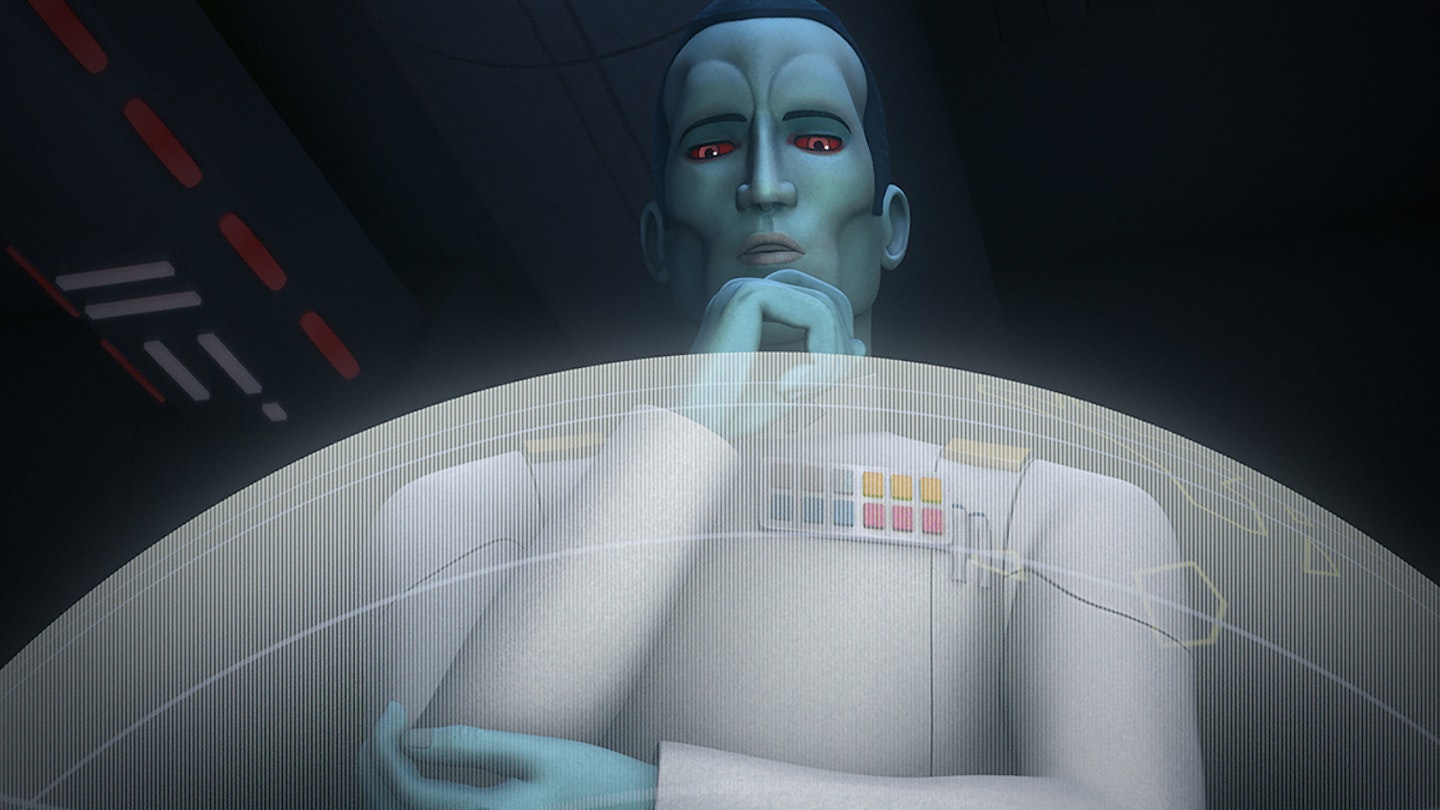
You brought up Ahsoka and Darth Vader. Is there more to that story to be told as the show goes on?
I don't read a lot of commentary and I don't see a lot of things the fans say, because I want to stay very true to what I've planned on doing. I have a whole outline of history and stuff I've been following for a while, especially with Ahsoka. The outpouring around the character really was surprising to all of us. She has grown exponentially as a fan-loved character, to the point where her cosplay is becoming so commonplace as is merchandise and memorabilia. For the era of Clone Wars kids, they get her as an identifier for them. I have said, and I did say at Celebration, it's likely you haven't seen the last of her. I won't say in what form she appears, but I just felt like to calm the fans down, they need to know there's something to look forward to.
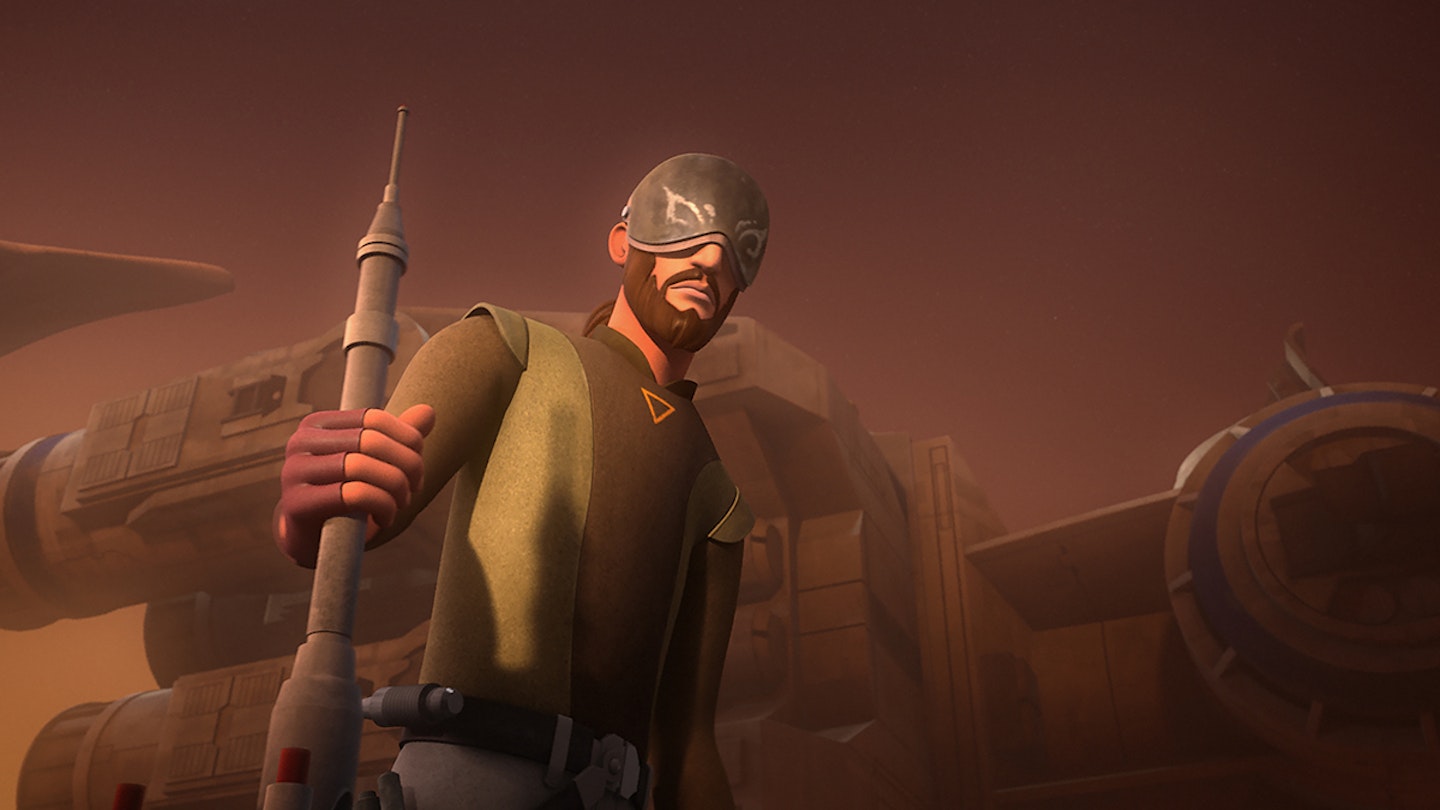
We've discussed Ezra's evolution, but what's your feelings regarding the changes and growth in some of the other characters?
Everybody has experienced a lot of growth. You know, Zeb and Hera and Kanan, definitely. They're more of the adults, so it's a bit more that they've been getting over certain hindrances that they've had in order to become the most effective version of themselves. Kanan's definitely gone from somebody that had completely lost their way to this reluctant teacher to now, at the end of season two, he's had what some people might think as a major setback. It will definitely change the character of Kanan for his blinding by Darth Maul. We'll have to see how he overcomes that.
The biggest character arc we're doing, besides Ezra, is really Sabine. We're getting into a lot more detail about Sabine and her backstory and what her actual potential is. I think that she's kind of risen to become a character that to the series is every bit of a lead as Ezra. She's almost like an Ezra-counterpoint, because she doesn't have all the natural abilities, but she has a lot of great instinct and she has a lot of guts and a lot of courage. She's going to have quite a journey this season that gets into why she is a rebel and what her business was in the Imperial Academy when she was a teenager. Some of that's a bit overdue, but it's a great arc and Tiya Sircar, of course, is performing brilliantly as Sabine. It's going to be fun for people to watch.
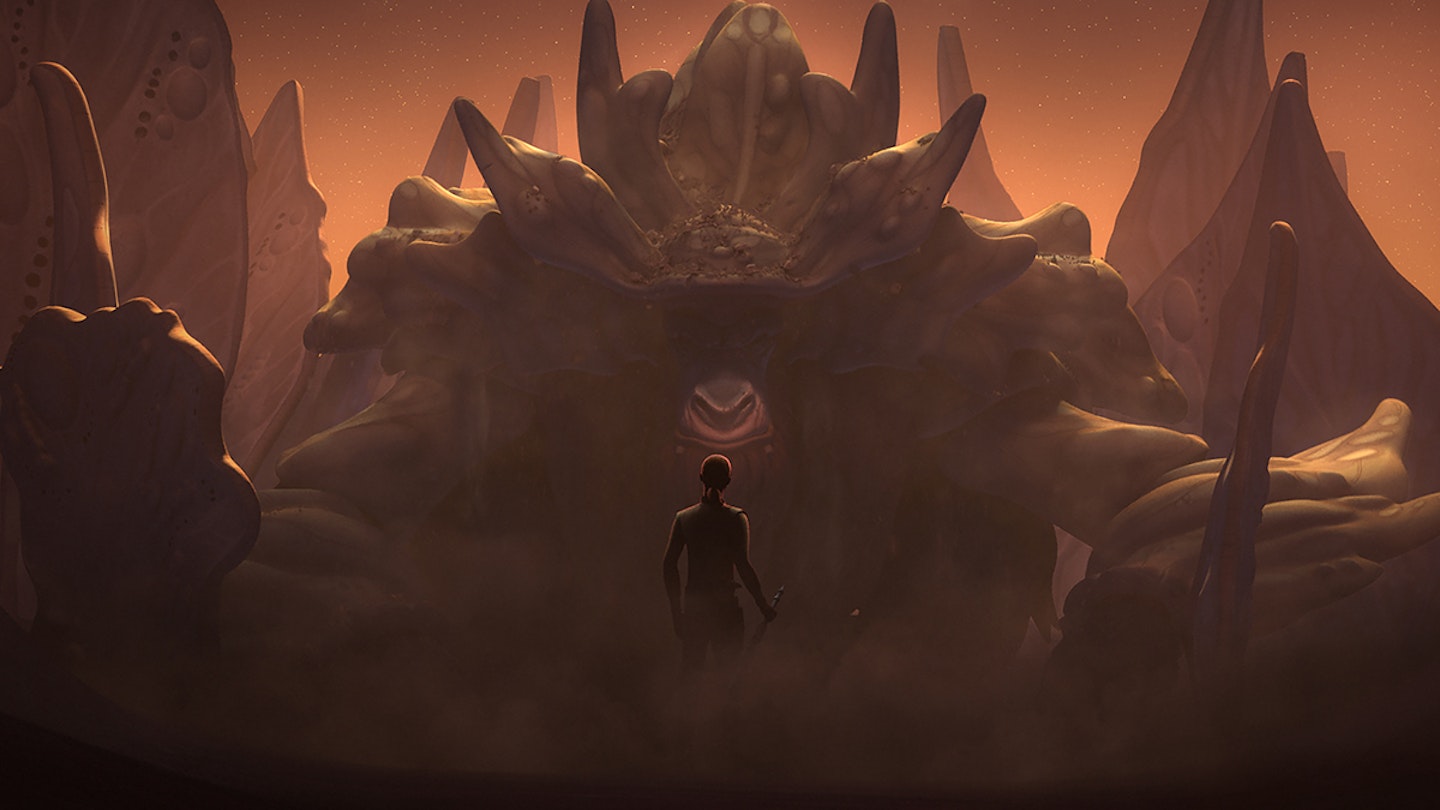
The trick is, then, keeping all of these people changing and growing as the show goes on.
You have to have a kind of a plan, an outline, to say, "This is where they're going to get to." Since the very beginning Simon Kinberg and I have always been asking, "Where are we going with this? Why are we telling this story? Why is it important to know about Ezra Bridger? Why are we introducing these characters to the Star Wars lore?" For me it's not enough to say we needed another animated show. That doesn't mean anything to me. It has to be fulfilling something. There are definitely characters that are evolving in this new generation of Star Wars fans, and mainly answering the question for me (which I wondered as a kid), which is, "Were there other people besides Luke Skywalker that could use the Force?" The Force doesn't just stop because the Empire takes over. The Force is everywhere, it's in everything. We know that Luke, according to Yoda, is the last of the Jedi when Yoda passes away, but what does that mean exactly and how did we get to that point and were there other heroes?
You read in any war stories, World War II, whatever, that there are many, many heroes. There are the main stories you always hear about, but there are all these other little people that did things that were very important that we don't always know about. I feel that what we're looking at with Rebels are these other heroes that were out there risking their lives and surviving and on a great adventure. This is the first time we get to really know about it. We'll see where it goes, but I think it's going well so far. I mean, all things are pointing that we've made the right decision.
Earlier we'd talked about Vader, and with this show taking place between Episode III and IV, he's a natural fit. How about people like Lando Calrissian or Darth Maul, who was obviously a survivor from Clone Wars, and Princess Leia? What age should she be? How tough was that decision to bring those kinds of people to Rebels without it seeming too early for the original trilogy?
It's a huge challenge. Honestly, I don't know if as a group we even like doing it. We're all very resistant, because we want to make sure, again, why do we have that person there? Why is that important? Is it important for Leia to know these guys? Does everybody know too many people? We have to think of all the repercussions: "Okay, if so-and-so knows somebody, then would that not come up that they saw a Force-wielding person?" We have to give it a lot of thought and it has to be organic to the story. There were some characters that it just made a lot of sense that we would crossover with, because we're dealing with a rebellion.
Then, of course, with Rogue One happening, and it's so close to our timeline, there have been a lot of considerations going on there to say, "Okay, what is relevant and what are you guys doing?" How do we keep what they're doing special and an exciting reveal, but then still account for it in the things we're doing on our show? Luckily we have a story group, which is kind of the fiber that connects all the things going on. I talk to the people that I need to that are on the other productions to make sure we're all in sync. We've got this great tapestry being woven now, here at Lucasfilm, in all the different Star Wars areas to make sure the fans are getting this authentic experience and when their characters show up, it's meaningful and appropriate.
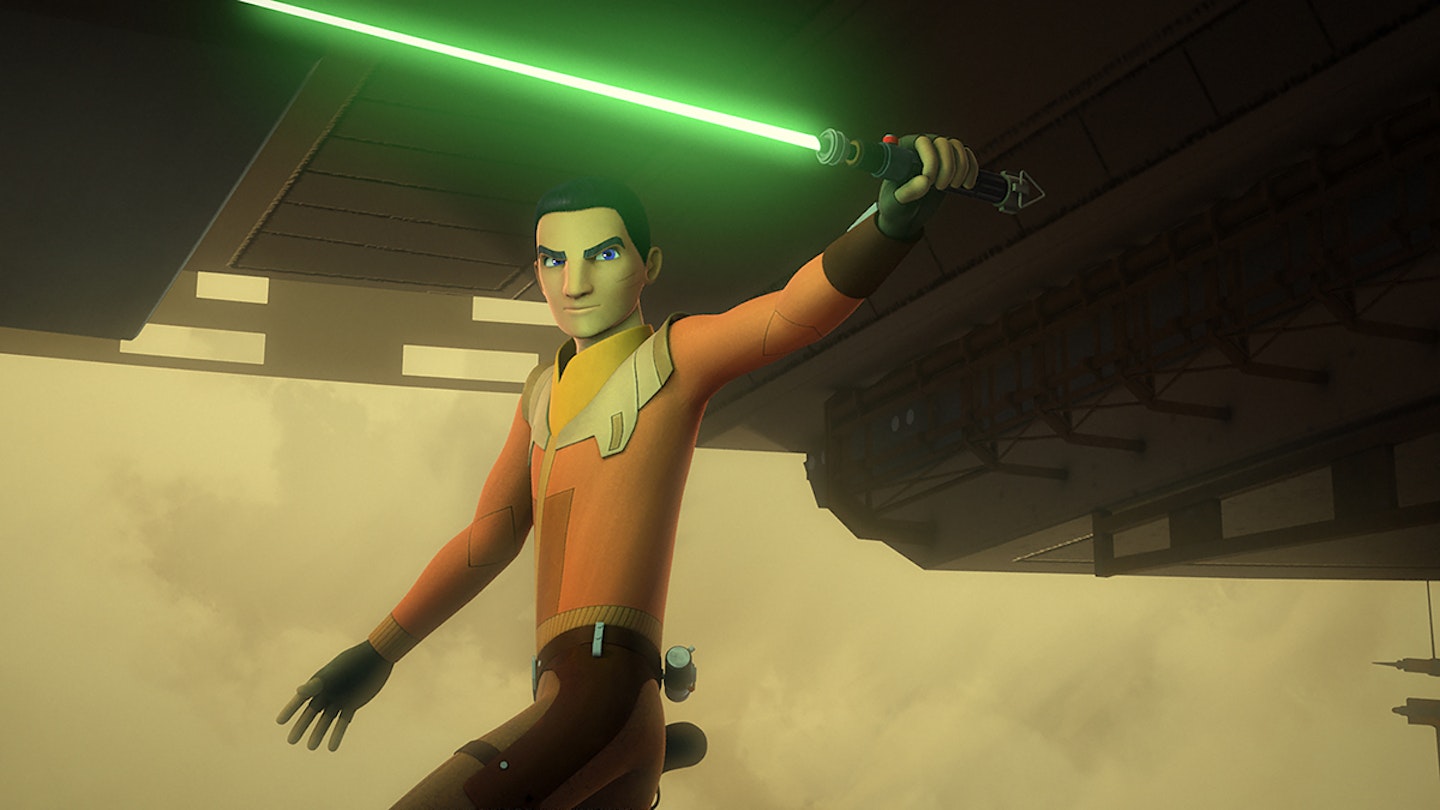
How close are you to the time of Rogue One? Will any aspects of Rogue One will be connected to the show in the third season?
I would say that there will be things that definitely have influenced each other and have been definitely accounted for. Something that I've been interested in, is I've been aware of kind of the look of the film and the characters in the film for a while. If you look at Rogue One, it's a much more gritty and very realistic-looking world and Rebels is a much more, when it starts out, colorful world. I've been slowly adapting, because I've been in the know, so that as we get closer to each other, things are going to naturally line up. I think our show will always be a bit more colorful, but it's meant to be able to ingest the look of certain things that are happening in the film. I think that will be a lot of fun for people.
Season three has just begun. What can you say about season three without saying anything, because that's the way the game is played?
That has been the last twelve years of my life: How do you get people excited without revealing anything? For me, the fact that Darth Maul will be back is very exciting to people. I think that's something to look forward to, because he became such a more dimensional, interesting character when we had him in Clone Wars and I thought Sam Witwer played him brilliantly last year. So well that we want to do more with him and really get into why is he there? Why was that important to introduce him? That's kind of a big part of what's going to be happening in season three.
Then you have the consequences for Ezra with his actions in the last season and the discovery of this holocron, this ancient Sith knowledge. That's always a difficult temptation for a young person that sees his friends in trouble or in need. The guilt he might feel over what's happened to his friends. Kanan was injured and Ahsoka is missing in action. They didn't come off with a complete victory at the end of last season. It's a transitional moment. Take Fulcrum, the name of what Ahsoka was known as: It's a fulcrum point for the whole thing, because as we came back, everybody was a little bit older. We jumped time a little bit. Things have been happening and people have started to change. That's what's very exciting.
And then there's Thrawn.
Talk to anybody from Star Wars. Thrawn is a symbol of an era when there was nothing happening in Star Wars and then Thrawn happened. Everybody read Heir To The Empire by Timothy Zahn. In Thrawn we really have a villain, and this is why I loved him in the book, because he was completely different than villains I'd seen before. He is not a lightsaber-wielding guy, he doesn't use the Force, he's just incredibly intelligent and very difficult to beat in the chess game of war. He's kind of like the Empire's Sherlock Holmes. That's going to be a huge obstacle for the Ghost crew this whole season. We've gone to a lot of care to make sure our version of Thrawn is, I think, accurate to what people liked about him in the book.
We've talked with Timothy Zahn, the author who created Thrawn. Obviously at Celebration people went nuts, because he was in the trailer, and it was like a standing ovation for this character. Just a validation. He became real to them again, because now he's back in the canon, I suppose. Everyone's excited about. That's, I think, a big deal and we're going to see how he affects the crew. He's a different kind of villain for them.
This is a patient man. That's what I'll say. I think the rebels capitalize on the predictability of the action of the Empire a lot of times, but this is a guy that's not looking at the move that you made in this episode. He's looking at the move he's going to make in several episodes. Lars Mikkeleson really brings the evil in his calm, calculating tone, playing Thrawn. I'm really excited for people to be more exposed to him.
In terms of the darker territory the show is exploring, it's very unusual to blind one of your lead characters and not say, "Here's a happy solution."
That was a hotly debated thing. I was pretty resolute on it and so was Henry Gilroy and Simon Kinberg. We just felt that this was something that needed to happen to the character. You'll see the change it makes in him. I think it's for the best. You see it in different ways, where Luke lost a hand. There are these symbolic concepts of loss, but what does it really mean? I think we handle it in the right way for Kanan. That's going to correspond with the introduction of another new character named Bendu, played by Tom Baker, who is famous, you know, for the Fourth Doctor. Tom comes in and plays this being, the Bendu, who is kind of the middle way of the Force and deals with a lot of things George and I used to talk about on Clone Wars when we dealt with things like the Mortis gods and these other strange Force beings that aren't Jedi or Sith. There's everything else in the galaxy in the living Force. That's going to be a fun intersection. In some ways Bendu's like a version of our Yoda. He's a person that comes and brings knowledge. Forget him being a Jedi. He's just a person that has vastly more knowledge than any of our current Jedi characters. Rather than a little guy, we made a really big guy, which is kind of fun. Then you go get Tom Baker, which, you know, you can't go wrong there.
Read Empire's exclusive interview with Ashley Eckstein on Rebels and her portrayal of Ahsoka
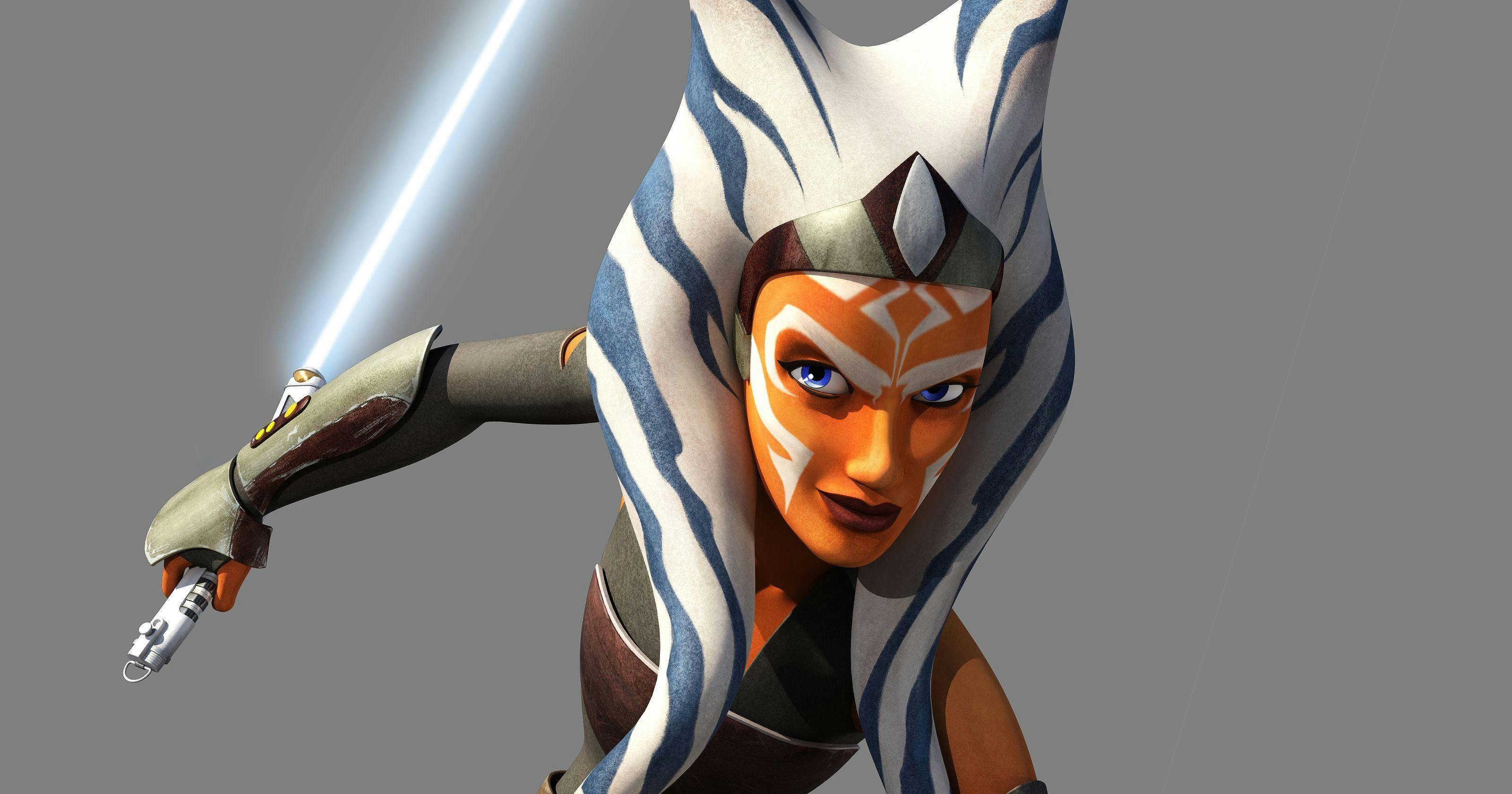%20](http://www.empireonline.com/movies/features/star-wars-rebelsahsoka-tano-interview/star-wars-rebelsahsoka-tano-interview?auto=format&w=1440&q=80)
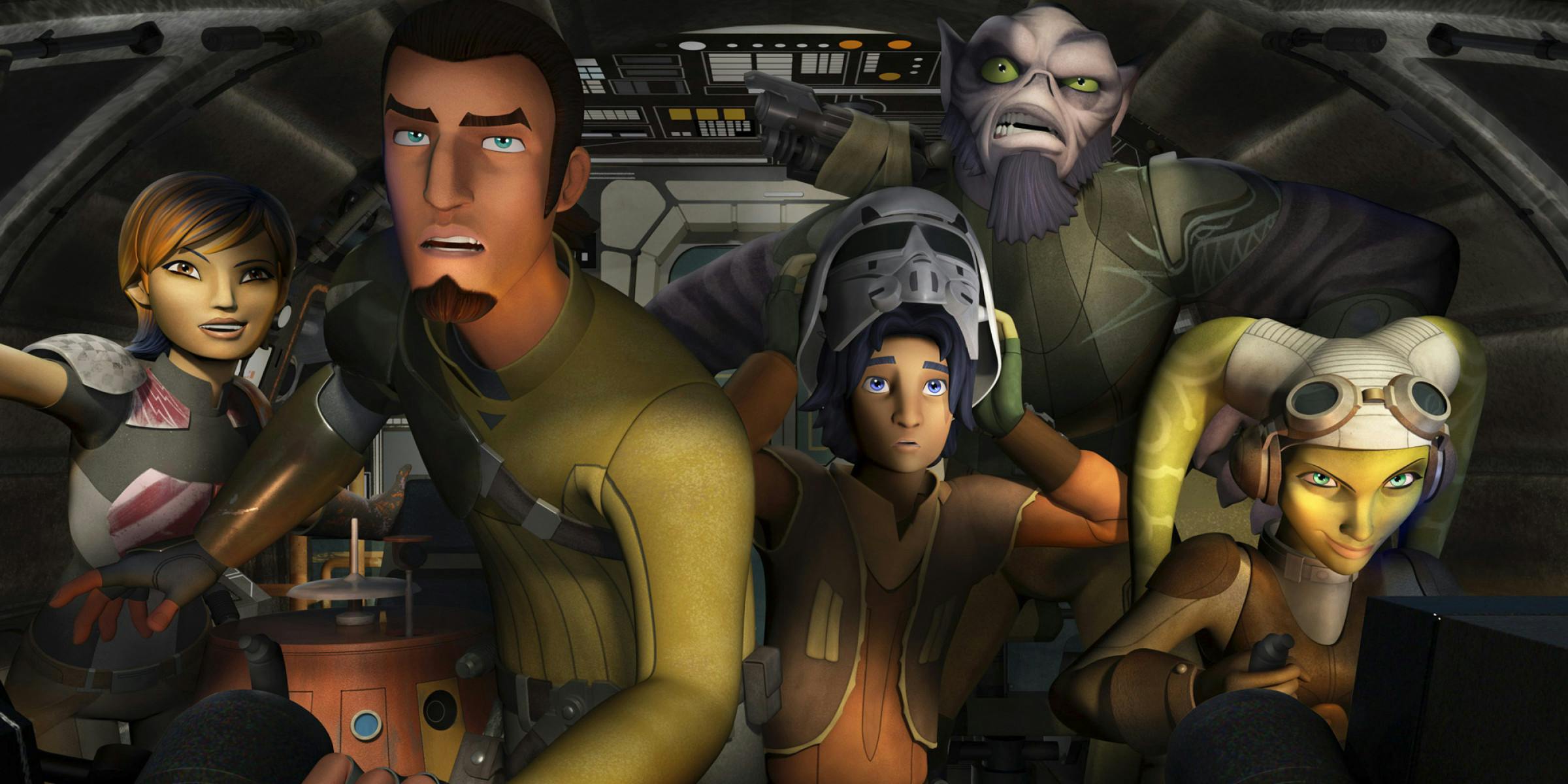%20](http://www.empireonline.com/movies/features/star-wars-rebels-inside-look/star-wars-rebels-inside-look?auto=format&w=1440&q=80)
